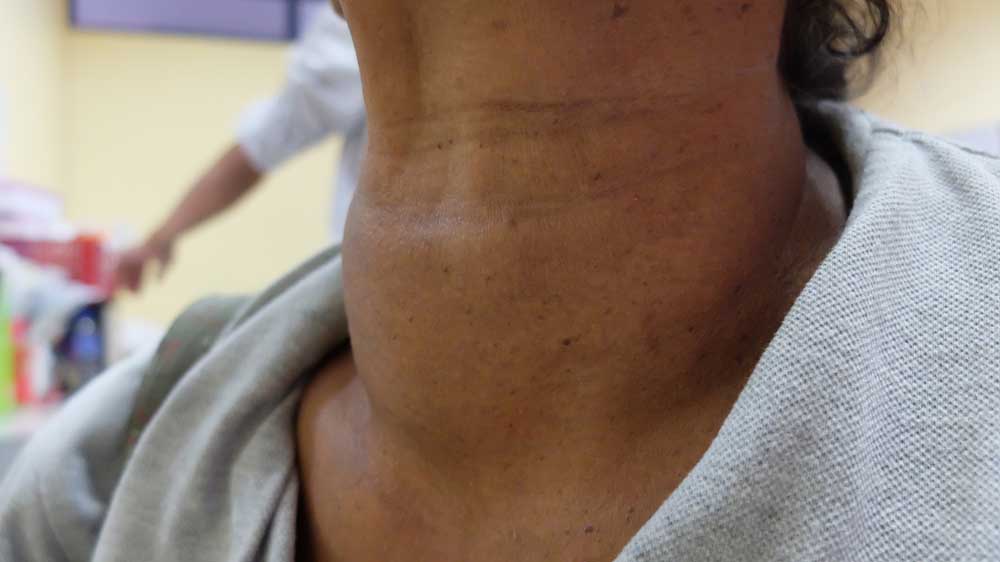Thyrotoxicosis
Features of thyrotoxicosis are caused by thyroid tumors that produce T3 and T4. Adenomas can cause thyrotoxicosis. In contrast, malignant neoplasms of the thyroid rarely cause thyrotoxicosis. Follicular and papillary carcinoma have little colloid, so they don’t cause symptoms related to the thyroid hormone, but anaplastic carcinoma does produce thyroid hormone and may cause symptoms. Medullary carcinoma is also associated with the secretion of calcitonin and other hormones such as somatostatin, serotonin, and vasoactive intestinal peptide (VIP).
Skin symptoms
Flushing of the skin in medullary carcinoma is due to the secretion of serotonin. Thyroxine secreting hormones can cause thickening of the skin, and edema.
Cardiovascular symptoms
High T3 and T4 levels cause tachycardia, an increase in blood pressure, palpitations, shortness of breath during exertion, arrhythmias, and tiredness.
Central nervous system symptoms
They are very common in patients with thyrotoxicosis. They experience nervousness, irritability, insomnia, and depression as the main neurological features of high thyroid hormones.
Respiratory system symptoms
High thyroid hormones cause tachypnea and an increase in minute volume.
Gut symptoms
Due to the secretion of VIP, medullary carcinoma can cause diarrhea. High T3 and T4 also cause diarrhea and an increase in appetite.
Reproductive symptoms
In females, the effects of high T3 and T4 levels are oligomenorrhoea or even amenorrhea, and in males and females, it leads to loss of libido and infertility.
Eye symptoms
Patients with a high level of thyroid hormone can be detected by looking at their eyes. They have lid lag (the upper eye lid does not close while looking downwards or moves very slowly), exophthalmos (forward protruding of the eyes due to retroorbital edema), ophthalmoplegia (weak eye muscles), chemosis, and exposure keratitis.
Metabolic symptoms
They usually include weight loss, intolerance to heat, excessive sweating, and muscle wasting. They are caused by an increase in the metabolism of the patient.
The diagnosis of tumors of the thyroid is made by fine-needle aspiration biopsy of the tumor. If medullary carcinoma is suspected, high serum calcitonin levels are diagnostic. Treatment of thyroid tumors is surgical excision of tumor or thyroidectomy. Radioactive iodine may also be used to destroy the thyroid gland.


